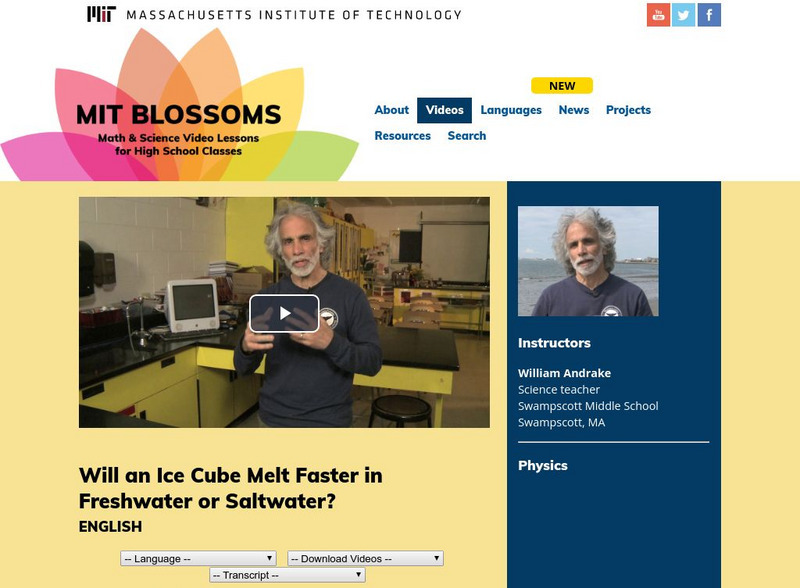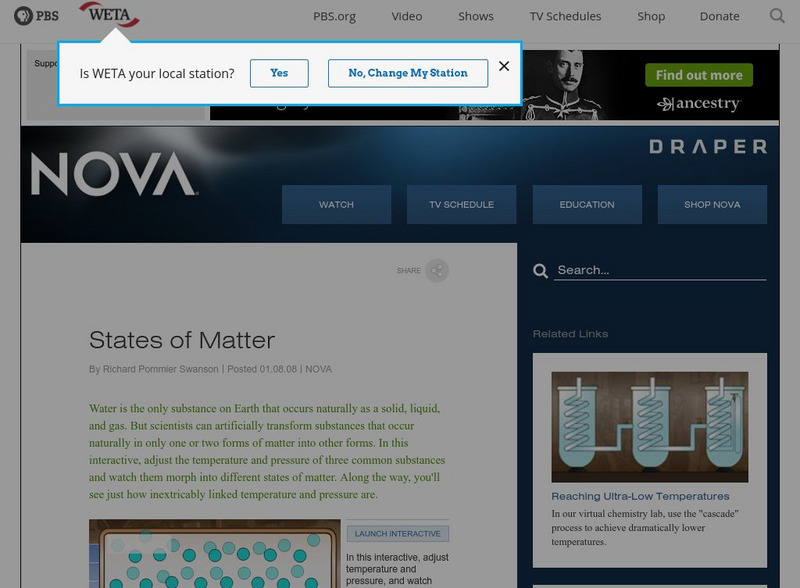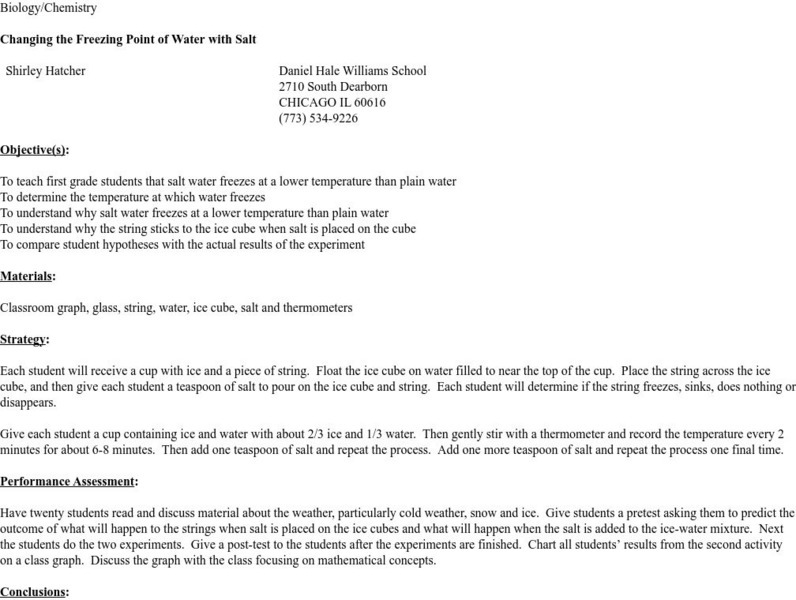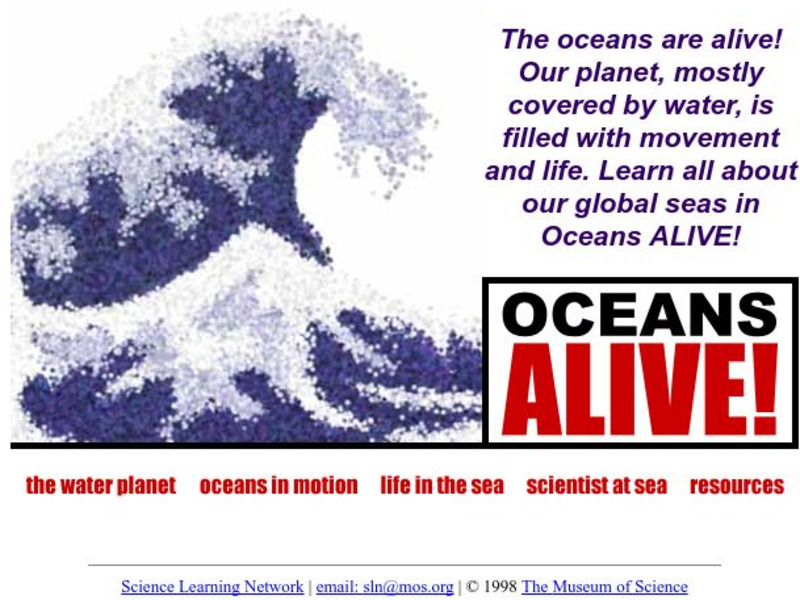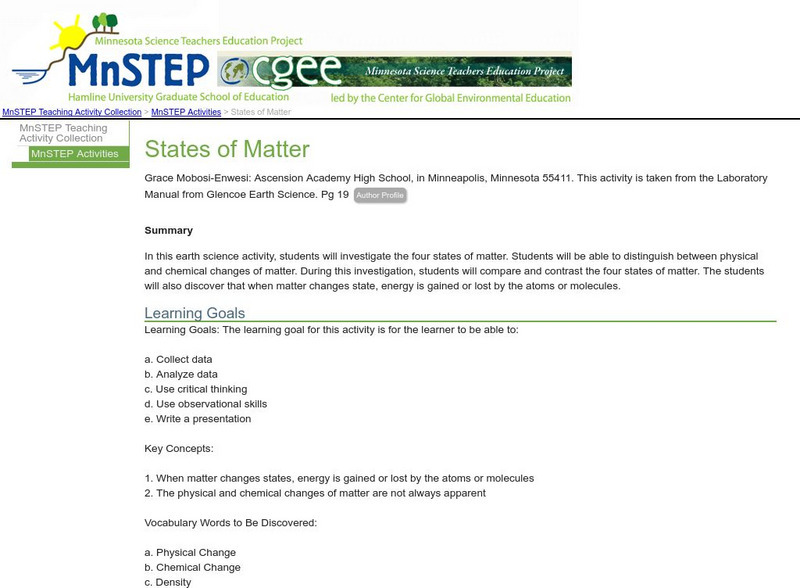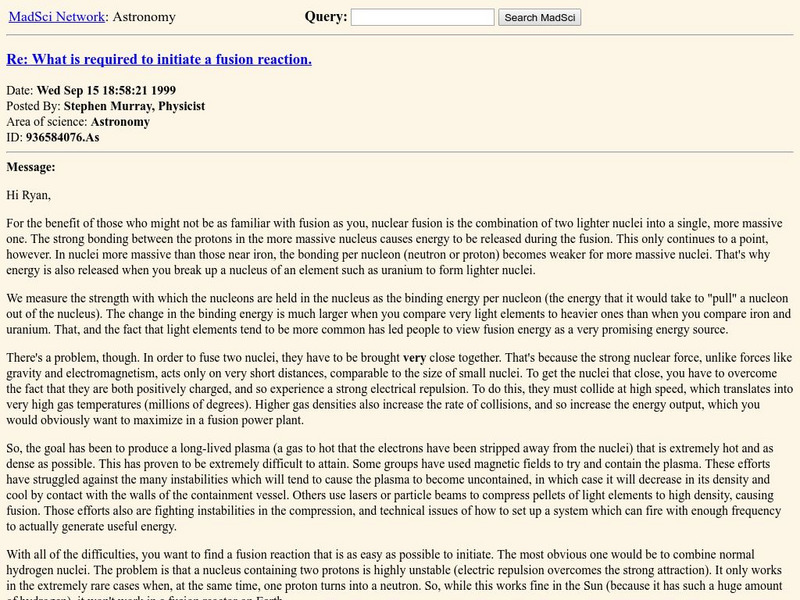Massachusetts Institute of Technology
Mit: Blossoms: Will an Ice Cube Melt Faster in Freshwater or Saltwater?
Engage students in the study of the ocean and saltwater with these activities. Students will see that saltwater has different physical properties than freshwater - mainly density. This lesson can serve as a springboard into other...
Chem Tutor
Chem Tutor: States of Matter
A very descriptive site that allows students to understand the different states of matter at the atomic level. Also discusses the process of phase changes and displays phase change graphs. Thermochemistry is also touched upon for high...
PBS
Pbs: Nova: Absolute Zero: States of Matter
This interactive allows you to explore the effect that temperature and pressure have on the changes in the states of matter. You can test these variables on carbon dioxide, hydrogen and water.
TeachEngineering
Teach Engineering: How Cold Can You Go?
Students explore materials engineering by modifying the material properties of water. Specifically, they use salt to lower the freezing point of water and test it by making ice cream. Using either a simple thermometer or a mechatronic...
Science and Mathematics Initiative for Learning Enhancement (SMILE)
Smile: Changing the Freezing Point of Water With Salt
This lesson plan teaches first grade students basic chemistry and physics principles--that saltwater freezes at a lower temperature that plain water.
Museum of Science
Museum of Science: Oceans Alive
There are links to the water planet, oceans in motion, life in the sea and resources. You will learn about the physical features of an ocean, changes in the ocean and the water cycle.
Children's Discovery Museum
Children's Discovery Museum of San Jose: Ice Exploration
Provides fun ideas for exploring how to transform ice using shapes, light, and color.
Science Education Resource Center at Carleton College
Serc: Mn Step: States of Matter
In this activity, students investigate physical and chemical changes in the states of matter for water. They collect data and record their observations.
National Geographic
National Geographic: Human Impacts on the Environment
Humans impact the physical environment in many ways: overpopulation, pollution, burning fossil fuels, and deforestation. Changes like these have triggered climate change, soil erosion, poor air quality, and undrinkable water. These...
Other
The Hydrological Cycle an Human Impact on It. [Pdf]
The hydrological cycle is usually called a recurring consequence of different forms of movement of water and changes of its physical state on a given area of the Earth. The role of different processes in the hydrological cycle and their...
Alabama Learning Exchange
Alex: Race for Life: Plant Adaptations
This is an outdoors, hands-on activity. Create a short race course to engage students in physical activity while drawing comparisons to the plant kingdom. This activity serves as an introductory to the impact small changes can have on...
MadSci Network
Msn: What Is Required to Initiate a Fusion Reaction?
From the Mad Scientist Network web site. Using a question and answer format, this page provides a thorough discussion of fusion reactions. Fusion and fission are compared and contrasted and the mechanisms which must occur to initiate and...


